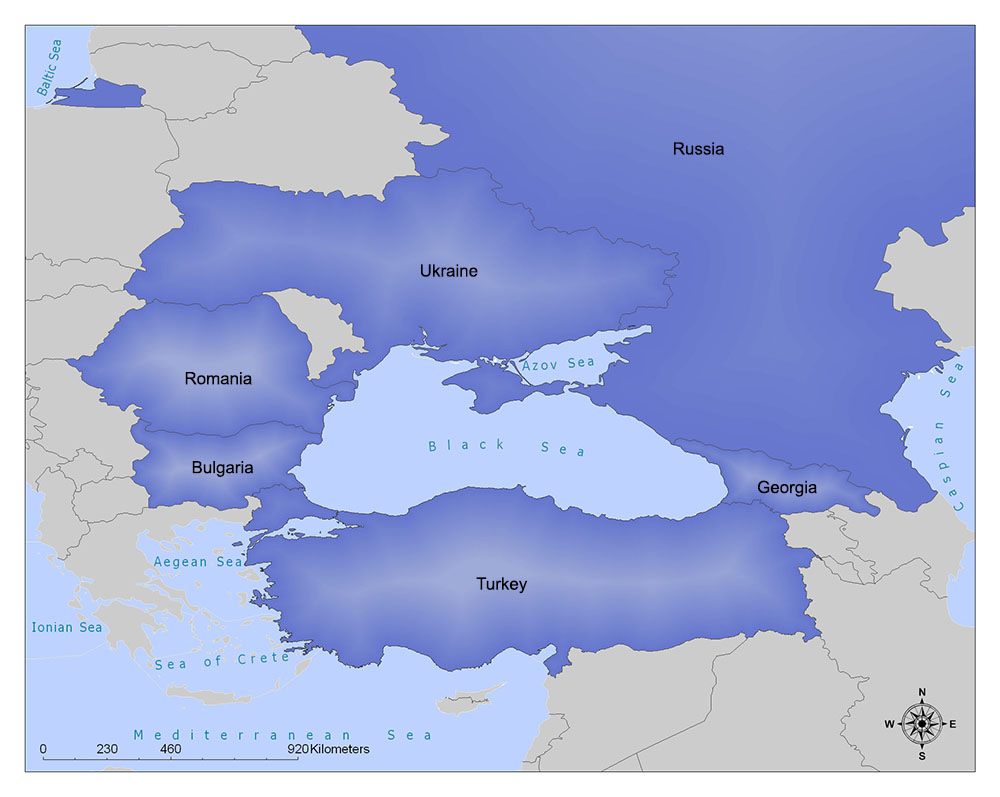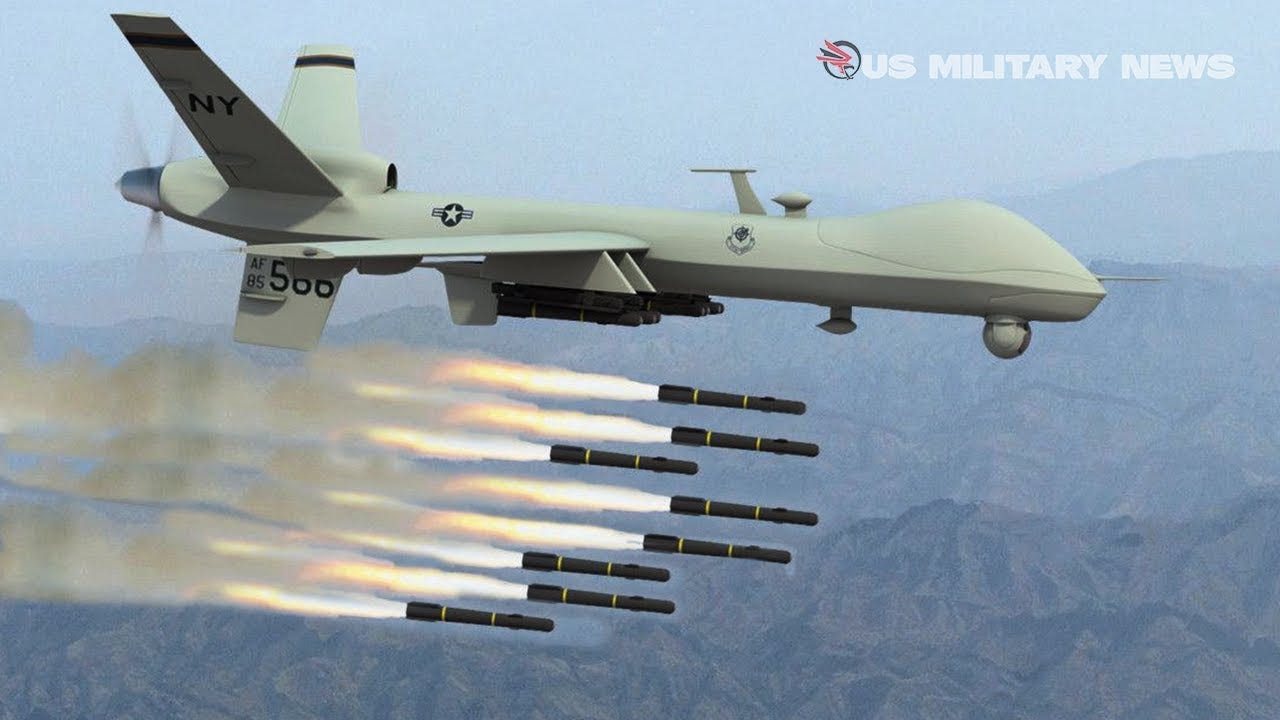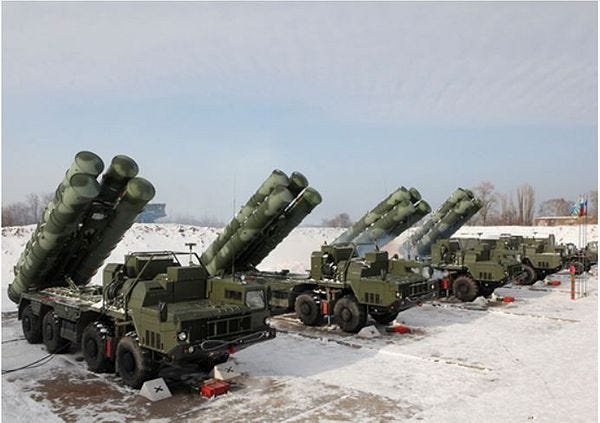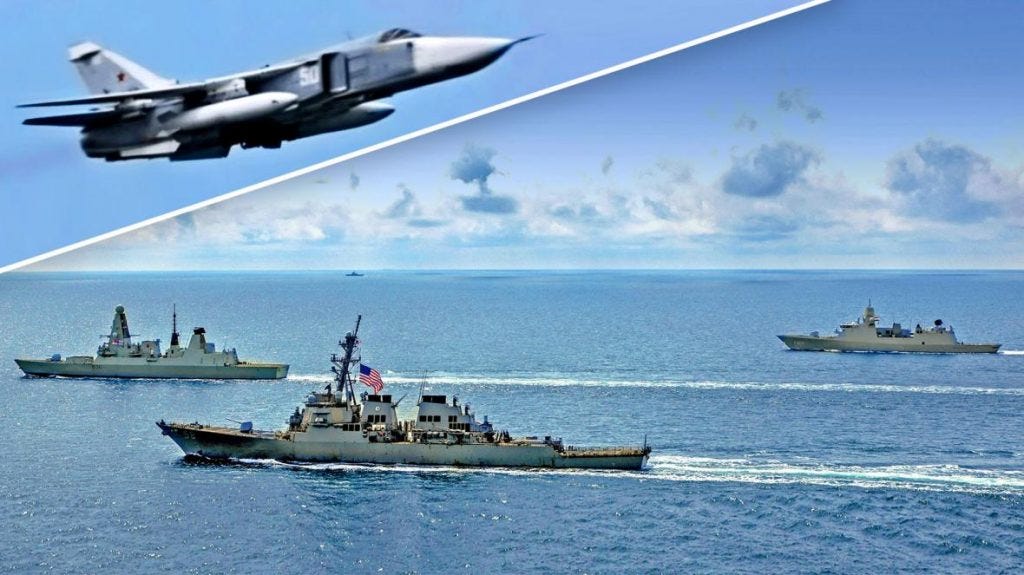With Allies Like Turkey Who Needs Enemies?
A Russian Su-27 forced a US Reaper Drone down in the Black Sea. The US is unable to recover the aircraft and its highly classified systems as Turkey won't let US warships enter the Black Sea.
Turkey, a longstanding NATO member, is violating the Montreux Convention and international law by preventing the United States from passing through the Bosporus Strait.1 As a result, the United States is unable to send US Navy ships to recover its Reaper Drone leaving it vulnerable to recovery by the Russians.2
Prior to Russia’s invasion of Ukraine US Navy ships from the Sixth Fleet routinely spent 100-200 days a year in the Black Sea.3 In fact, for 25 years the US, Ukraine, and Turkey conducted joint military and naval exercises in the Black Sea—exercises intended to convince Putin that Russian aggression in the region would be very risky. After Russian annexed Crimea in 2014 President Erdoğan of Turkey was rattled when the Obama and Biden administration failed to respond to the sort of aggression their joint exercises with Ukraine were designed to deter.4 Interestingly, Turkey didn’t limit the US or NATO’s access to the Black Sea during the conflict. While Erdoğan officially condemned Putin's annexation of Crimea he maintained close economic and political ties with Russia. Those ties only improved after a US-backed coup d'etat failed to oust Erdoğan in 2016.5 Three years later Erdoğan signed an agreement to buy Russia’s S-400 surface-to-air missile batteries solidifying his relationship with Putin.6 Last year Erdoğan announced he was partnering with Russia on various joint defence industry programs including fighter jets and submarines.
Reportedly Biden did not realize Turkey would illegally prohibit US Navy ships from entering the Black Sea if Russia invaded Ukraine, but it is becoming clear that Putin knew that he could count on Erdoğan to keep the US out of the Black Sea. In a blink of an eye Turkey ended 25 years of military cooperation and deterence putting NATO's future in question.
Six years after Ukraine’s independence the Eastern European nation began hosting the Sea Breeze joint military exercises with various NATO members including the United States.7 Russia has always objected to Ukraine's participation in the joint military exercises, seeing them as a provocation and interference in its sphere of influence. Russia has viewed Ukraine's participation in the exercises as a sign of increased cooperation between Ukraine and NATO, which Russia perceives as a threat to its national security. Russia has also criticized the participation of other NATO countries in the exercises, arguing that it undermines regional stability and increases the risk of a military conflict in the Black Sea region.
Just six months before the Russian invasion, Ukraine hosted its annual Sea Breeze joint military exercise with the goal of showing unity, promoting regional security and stability, and detering Russian aggression in the Black Sea region and against Ukraine in particular. To that end, four US Navy ships traversed Turkey’s Bosporus Strait entering the Black Sea including:
USS Ross (DDG-71) - an Arleigh Burke-class guided-missile destroyer
USS Thomas Hudner (DDG-116) - an Arleigh Burke-class guided-missile destroyer
USS Monterey (CG-61) - a Ticonderoga-class guided-missile cruiser
USNS Laramie (T-AO 203) - a Henry J. Kaiser-class fleet replenishment oiler
Additionally, the US sent various ground units, fighter aircraft, P-8A Poseidon maritime patrol aircraft, and MQ-9 Reaper Drones. They were joined by 31 additional ships from various countries including Ukraine, Turkey, Canada, Denmark, France, Germany, Italy, Norway, Poland, Spain, and the United Kingdom.
Shortly after Russia’s invasion of Ukraine President Erdoğan of Turkey informed President Biden that US warships would no longer be welcome in the Bosporus Strait and would not be allowed to enter the Black Sea. It is worth remembering that Turkey has been a NATO member since 1952 - making the decision particularly worrisome to members of the alliance.8 Turkey is also prohibiting warships from Great Britain, Germany, and France from entering the Black Sea as well. The prohibition of US military vessels is clearly illegal.
Turkey claims the right to prevent US and NATO warships from entering the Black Sea as a result of the Montreux Convention9 which allows Turkey to control the passage of military vessels of beligerents through the Straits during times of war or when it feels its security is threatened. Erdoğan cited several factors justifying his decision to prevent US warships from entering the Black Sea including:
US sanction on Turkey over the purchase of Russian S-400 missile systems10
US support for Syrian Kurdish forces over the objections of Turkey11
Obama/Biden’s support of the 2016 failed coup d'etat to oust Erdoğan12
President Erdoğan sees the United States as a clear and present danger to his regime and as a result, he has determined the US and its fellow NATO members threaten Turkish security. He’s even gone so far as to prevent NATO’s growth by vetoing Swedish and Finnish membership in the alliance.13 Meanwhile, Russian civilian ships are allowed free and unmolested passage through the Bosporus Strait and Russian warships are allowed to return to their Black Sea ports. With friends like Turkey who needs enemies?
Russia justified the annexation of Crimea in 2014 on the grounds of protecting Russian-speaking and ethnic Russian populations in Ukraine, who it claimed were being threatened by the new government in Kiev that came to power after the ouster of former President Viktor Yanukovych. Russian authorities also argued that the annexation was necessary to safeguard Russia's strategic interests and its Black Sea naval base in Sevastopol, which is home to the Russian Black Sea Fleet.
Russia's official position was that the Crimean referendum held in March 2014, which resulted in an overwhelming majority of voters supporting annexation to Russia, was conducted in accordance with international law and reflected the will of the Crimean people. However, the referendum was widely criticized by the international community as being illegitimate, as it was held under Russian military occupation and was not recognized by Ukraine or most other countries.
In addition to its claims of protecting Russian interests and the Crimean population, Russia also argued that its actions were in response to what it saw as provocative actions by Western powers in supporting the protests that led to Yanukovych's ouster, and in seeking closer ties between Ukraine and the European Union.
The annexation of Crimea remains a contentious issue in international relations, with many countries continuing to condemn Russia's actions and imposing economic sanctions in response.
President Recep Tayyip Erdoğan of Turkey accused the United States of backing the coup attempt against him in July 2016 because of the US government's refusal to immediately extradite Fethullah Gülen, a Turkish Islamic scholar and former ally of Erdoğan who has been living in self-imposed exile in the United States since 1999. Gülen is the founder of the Gülen movement, which is considered a terrorist organization by the Turkish government and has been accused of masterminding the coup attempt.
Erdoğan and his government have accused Gülen and his followers of infiltrating the Turkish state and orchestrating a plot to overthrow the government, which led to a crackdown on suspected Gülenists in the military, civil service, and media following the coup attempt. Erdoğan believed that the US government's refusal to extradite Gülen to Turkey demonstrated a lack of support for his government and implied US complicity in the coup attempt.
Despite repeated requests from the Turkish government, the US government has not extradited Gülen to Turkey, citing a lack of evidence linking him to the coup attempt and concerns about the fairness of Turkey's judicial system. The extradition request has remained a contentious issue in US-Turkish relations, with Erdoğan and other Turkish officials continuing to press the US government to extradite Gülen.
Sea Breeze is an annual multinational maritime exercise conducted in the Black Sea region, typically in July or August, led by the United States and Ukraine. The exercise involves naval and amphibious forces from participating countries and focuses on improving interoperability and cooperation in joint operations and exercises.
Sea Breeze has been held annually since 1997 and involves a range of activities, including maritime interdiction operations, search and rescue exercises, amphibious landings, and anti-submarine warfare drills. The exercise also includes training on maritime security, including counterterrorism and counter-piracy operations, and humanitarian assistance and disaster response.
The participating countries in Sea Breeze vary each year, with the exercise typically involving around 20-30 countries, including NATO members, partner nations, and other countries in the region. In addition to the US and Ukraine, previous participants have included Bulgaria, Georgia, Romania, Turkey, and several other European and Black Sea nations.
Sea Breeze is viewed by participating countries as an important opportunity to strengthen cooperation and coordination in maritime security and to enhance the capacity of regional navies to work together effectively in response to potential threats and challenges in the Black Sea region. However, the exercise has also been criticized by Russia, which sees it as a provocative and aggressive military activity near its borders.
The Montreux Convention is a treaty signed in 1936 in Montreux, Switzerland, that regulates the passage of military vessels through the Turkish Straits, which includes the Dardanelles, the Sea of Marmara, and the Bosporus. The Convention was signed by Turkey, the Soviet Union, Great Britain, France, Italy, Japan, Bulgaria, Greece, Romania, and Yugoslavia.
The Montreux Convention specifies the maximum tonnage and number of vessels that can pass through the straits, as well as the duration of their stay in the region. The treaty also sets out rules for the passage of warships and other military vessels, depending on the flag they fly and the purpose of their voyage. The Convention grants Turkey sovereignty over the waters of the Straits and ensures its neutrality in times of war.
The Montreux Convention is still in force and remains an important international agreement, given the strategic importance of the Turkish Straits, which connect the Black Sea to the Mediterranean. The Convention has been amended several times, most recently in 1982, to reflect changes in shipping practices and international law.
While the United States is not a signatory to the Montreux Convention, it recognizes the Convention's significance and generally honors its provisions. The US government acknowledges Turkey's sovereignty over the Turkish Straits and respects the Convention's regulations regarding the passage of military vessels through the region.
The US Navy follows the Montreux Convention's rules when conducting operations in the Black Sea and has worked closely with Turkey to ensure compliance with the treaty's provisions. The US government has also expressed support for the Convention's aim of maintaining the stability and security of the Black Sea region.
However, the US has occasionally criticized the Convention's restrictions on the passage of warships, arguing that the treaty limits freedom of navigation and hinders its ability to respond to crises in the region. Despite these criticisms, the US has generally adhered to the Montreux Convention's principles and has sought to cooperate with Turkey and other signatories to ensure the treaty's effective implementation.









I mean the title is a bit misleading seeing as the US attempted a regime change coup in Turkey in 2016. Erdogan is standing his ground. Thank goodness.